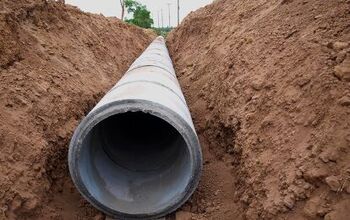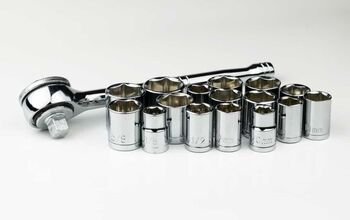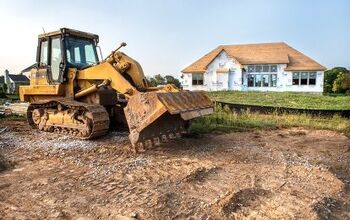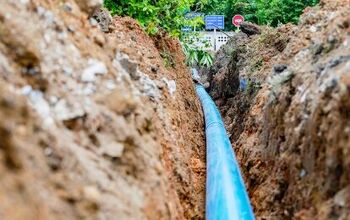House Smells Like Sewer When It Rains? (Possible Causes)

The existence of a sewage smell is unfortunate but has happened to homeowners at least once. You awake on a rainy morning or enter your home after a rainstorm, and it just doesn’t smell quite right. Instead of the clean, fresh scent, you are accustomed to welcoming you, your home reeks of sewer smell. It’s a strong, pungent odor that is reminiscent of a backed-up sewer.
Although rain is welcomed and necessary, the sewer smell is very unpleasant, and you will want to have a plumber take a look at your problem. You’re probably wondering why you’re experiencing this, what the possible causes and if there are any preventative methods or fixes you can do to stop the smell.
Rain causes changes with the atmospheric pressure which causes the air to become dense. Therefore, the methane doesn’t flow through the vents as it should. It stays at the ground level which makes your home stink like sewage. This can indicate an issue with your septic or sewer route, compromised floor drains, or a broken wax ring.
While this issue can be unfavorable and problematic, it is fixable! This article will take you through the possible reasons why your house may smell like sewer after it’s rained.
Why Does My Home Smell Like Sewage After It Rains?
The pressure of the rain causes changes in the atmospheric pressure which then causes the air to be so dense that the methane sits against the ground rather than escaping through the vents. This is usually why you’ll be able to smell the sewer gases throughout your home.
What Is Sewer Gas?
The first step in understanding your problem is to understand what exactly sewer gas is. Sewer gas refers to the gases that are produced by waste mixing with additional household materials and coming up through your sewage system.
This combination can have some very unpleasant smells and involve gases such as ammonia, sulfur dioxide, hydrogen sulfide, and others.
What Are Some Reasons You Might Smell Sewer Gas When It Rains?
There are many other reasons why your home might smell like methane when it’s raining. Here are just a few of those reasons.
Decomposing Waste In Your Sewage System
Possibly the most common cause of a sewage smell in your home is the decomposing waste and bacteria that have built up in your sewer system.
Most sewers contain a mixture of human waste, moisture, and drainage, which can cause bad smells on their own. However, sewer systems are outfitted with sewer traps to prevent toxic off-gassing from occurring.
All residential toilet systems will have a sewer trap or P-trap where the water will collect and form a barricade between your home and the sewer gases. If your sewer trap has not been adequately sealed using sewer plugs or if these plugs have come loose, the sewer gas can escape resulting in an unpleasant smell.
Every area of your home that has a drain should have some variation of a P-trap, including sinks, toilets, and laundry drainage systems. If your sewer trap has broken or is malfunctioning in any way, it will result in a pungent sewer smell.
Problems With Your Septic Tank
If your home contains a septic system and you’re experiencing a foul odor when it rains or afterward, the issue may be any, or a combination, of the following:
- A broken pipe in your septic tank is typically a common issue. Rainwater will gather in the lowest area, and if there is a break in your sewer line, your septic tank may begin to fill. The septic tank fills up with water causing sewer gas to rise and escape through the broken pipe.
- The methane gas in the septic tank can become trapped and not flow through the ventilation as it typically does. Since rain causes atmospheric pressure changes and results in the air becoming heavy, the gas will remain low to the ground and produce a foul odor.
- Downdrafts can cause an awful sewer smell in your home. Downdrafts from plumbing vent stacks can occur in cold temperatures. The odor can subside as the temperature goes up; however, it will vary during the day.
- A blocked venting system in your septic tank. If you’ve recently done landscaping or other work on your home, it’s possible that your vents may not be working correctly. This will ultimately result in sewage gases escaping into your home from the wastewater.
A Broken Wax Ring
Your wax ring sits at the base of your toilet, and its purpose is to create a seal between the drain pipe and your toilet.
If the seal is damaged or broken, it can result in a leaky toilet and a foul smell. This will also typically cause sewer gas to come up through your pipes and escape through the broken wax ring.
In order to fix a broken wax ring, you’ll need to drain the toilet to access the device. The condition of the wax ring may require you to scrape it off to eradicate it.
We recommend using a vinegar cleaning solution to clean the toilet flange area before installing the new wax ring.
Compromised Floor Drains
Another possible cause to check is your floor drains. Although this is more common in commercial buildings, some homes also have floor drains possibly in a bathroom or kitchen. If your floor drain was adequately installed, it will contain the previously mentioned P-trap.
However, if the P-trap has been compromised, the sewer gas can escape and cause a nasty sewage odor. If you’re especially handy, fixing a P-trap can be done by yourself; however, we recommend calling a professional plumber to ensure proper installation.
Is Sewer Gas Dangerous?
While sewer gas includes both toxic and non-toxic gases, breathing in this mixture can be harmful if not addressed right away. Since the gas is a combination of various gases and compounds, some of these can contribute to high-level toxicity.
Sewer gas will not be dangerous in small doses, but the possibility for high-level toxicity is a significant concern.
Specifically, hydrogen sulfide has been found to be toxic to the oxygen systems in your body. It can result in more adverse symptoms, organ harm, and possibly even death in very high amounts.
What is Sewer Gas Made Of?
Ammonia should be familiar to you as a controversial compound often found in cleaning products. It’s most identifiable by its very distinctive odor.
At low levels, ammonia can cause irritation in the nose, eyes, or throat. Whereas higher levels can also cause harm to your organs and may result in death.
Finally, both carbon dioxide and methane are typically non-toxic and will cause no harm to humans. However, methane can be very flammable in higher amounts, and ammonia is known to be extremely flammable.
What Are The Symptoms Of Sewer Gas Exposure?
Although the first indication of sewer gas in your home is a foul odor, you may experience a range of different symptoms. Look out for these:
- Headaches or general lightheadedness
- Nausea and possible vomiting
- Uncharacteristic fatigue
- Dizziness
- Poor concentration or memory
However, if higher levers of sewer gas have leaked into your home, you may experience some of these more severe symptoms:
- High levels of ammonia will cause throat, mouth, and lung discomfort
- Eye irritation or pink eye
- Seizures
- Absence of smell
- In most serious cases, coma or death
Can You Fix The Sewer Gas Smell On Your Own?
If the fix is something as simple as replacing the wax ring of your toilet, then this can be done on your own easily.
However, you won’t know if that’s the issue unless you remove your toilet to look. When you remove your toilet, you need to replace the wax ring anyway, so perhaps it would be a good idea first to replace the wax ring and see if that solves the problem.
If replacing the wax ring does not solve the problem, it is time to call a plumber for help. They will be equipped to deal with the issue. Make sure you let them know you already replaced the wax ring on your toilet, so they don’t waste their time checking that.
How Much Does it Cost to Hire A Plumber?
The cost to hire a plumber widely varies depending on the contractor or company you choose to go with. You will pay between $50 and $200 per hour.
On average, most people spend around $120 per hour for a plumber. Make sure you check at least three different rates and ask what is all included in their quote.
How Long Can You Be Exposed to Sewer Gas?
The acceptable 10-minute H2S exposure limit, according to OSHA guidelines, is 10 parts per million (ppm). Exposure to H2S concentrations of 100 ppm or higher is considered Immediately Dangerous to Life and Health (IDLH).
To avoid exposure to this toxic gas, property owners should conduct the following tests: Test the air for hydrogen sulfide gas concentrations.
Wrapping It Up
Anywhere that you have a drain in your home, sewer gas can seep through your pipes. Rain will intensify the situation by pushing the gases out. If you’re noticing the presence of a sewer smell, this is typically an indication that you have some deeper sewage problem.
Addressing a foul sewer gas smell in your home ultimately comes down to prevention. By cleaning out your drains frequently, making sure that water remains in your sewer traps, and keeping your toilet from becoming loose, you can prevent sewer gas from escaping into your home.
For more plumbing issues around the home, check out “ Garbage Disposal is Leaking From The Bottom? (We Have a Fix)” and “ Sink Only Drains When The Garbage Disposal Is On? (We Have a Fix).”

Jessica considers herself a home improvement and design enthusiast. She grew up surrounded by constant home improvement projects and owes most of what she knows to helping her dad renovate her childhood home. Being a Los Angeles resident, Jessica spends a lot of her time looking for her next DIY project and sharing her love for home design.
More by Jessica Stone



























